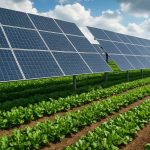AI Breakthroughs, Emerging Risks, and Future Pathways – Comprehensive Industry Update (June 30, 14:34 CET)
AI’s Next Frontier: Innovations, Uncertainties, and Strategic Insights for the Evolving LandscapeCurrent State and Key Drivers of the AI MarketPioneering Technologies and Shifting Paradigms in AIMajor Players, Disruptors, and Strategic…
Comprehensive Guide to Internet Connectivity Options in France: Fiber, DSL, Satellite & More
Exploring France’s Evolving Internet Landscape: Fiber, Satellite, and the Full Spectrum of ConnectivityCurrent State of Internet Access in FranceEmerging Technologies and Shifting Access MethodsKey Players and Market DynamicsProjected Expansion and…
San Marino’s Small Scale: A Surprising Edge in the Digital Landscape
How San Marino’s Compact Size Fuels Its Distinctive Internet Strengths and OpportunitiesSan Marino’s Digital Market: Scope and StructureEmerging Technologies Shaping San Marino’s Internet EcosystemKey Players and Market Dynamics in San…
Energy Yield Optimization in Agrivoltaics: 2025 Market Trends & 18% CAGR Growth Forecast Through 2030
Energy Yield Optimization in Agrivoltaics 2025: Maximizing Dual Land Use for Sustainable Power and Agriculture. This report analyzes key technologies, market drivers, and growth opportunities shaping the sector over the…
Alishan Green Energy Supercharges Solar Power with Massive 6.6 GW Production Boost and Next-Gen Solutions
Alishan Green Energy supercharges solar tech with 6.6 GW encapsulant capacity, setting global benchmarks in quality and sustainability for 2025.
Solar Hydrogen Revolution: Scientists Boost Clean Fuel Production by 40% With Simple Temperature Hack
Scientists supercharged solar hydrogen output by 40%—discover how hotter electrolytes and clever materials may soon power a cleaner world.
Japan Embraces Hydrogen Power: Revolutionary BeHydro Engines Set for Coastal Shipping Surge
BeHydro brings its cutting-edge hydrogen engines to Japan’s coastline, igniting a new chapter in clean maritime operations.
Green Energy EV Charging Stations Set to Surge: Market to Hit New Highs by 2032
Are Green Energy EV Charging Stations the Next Trillion-Dollar Opportunity? Inside the Rapid Rise Shaping Sustainable Transportation in 2025 and Beyond Global green energy EV charging stations market is primed…
Hydrogen Race Heats Up: Why African Exports to Europe Face Steep Costs in 2025
Europe’s Green Energy Hopes Face Hurdles: African Hydrogen Exports Remain Costly Without Policy Shifts Africa's green hydrogen dream faces steep export challenges in 2025, with policy changes key to connecting…
RegTech for Algorithmic Trading 2025: Market Growth Accelerates Amid AI-Driven Compliance Solutions
Regulatory Technology (RegTech) for Algorithmic Trading Market Report 2025: Unveiling Growth Drivers, AI Innovations, and Global Compliance Trends. Explore Key Players, Forecasts, and Strategic Opportunities Shaping the Next 5 Years.…



